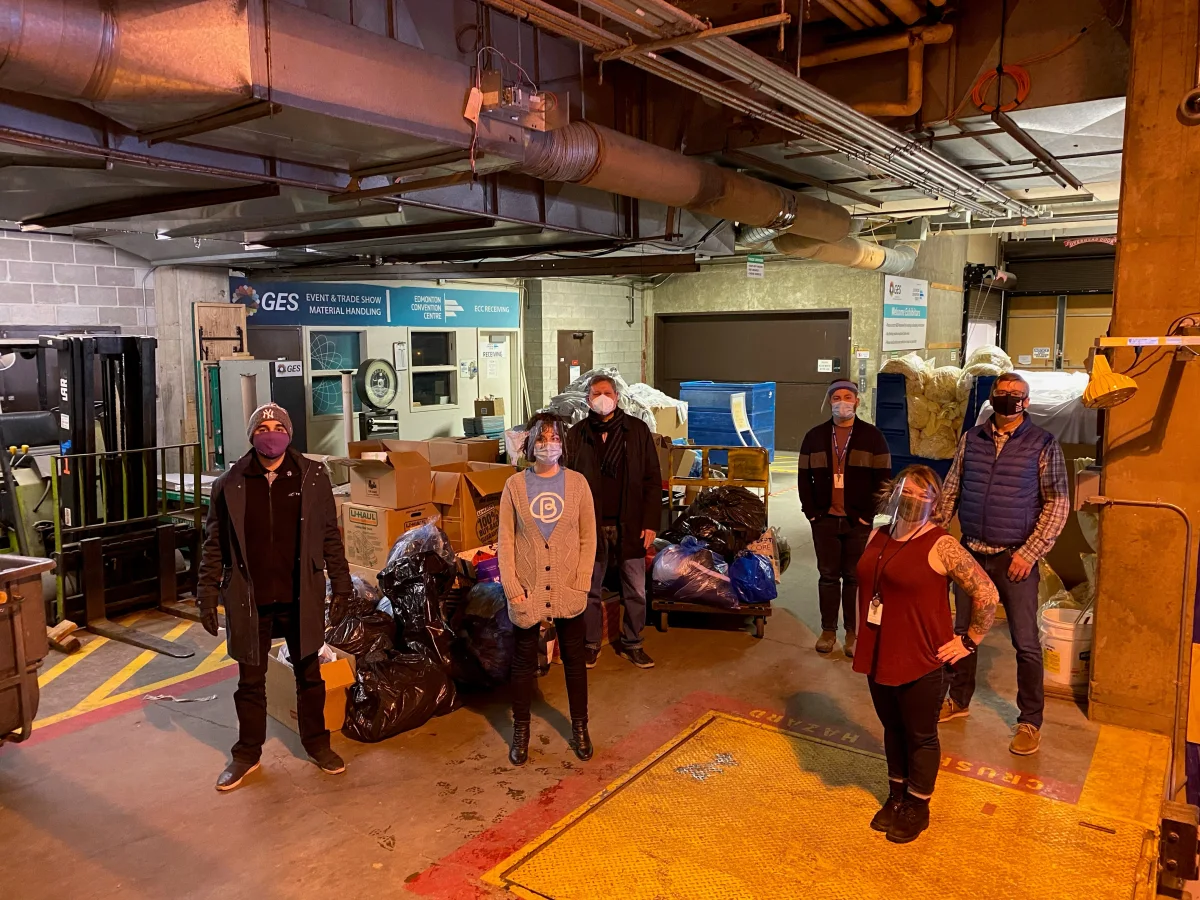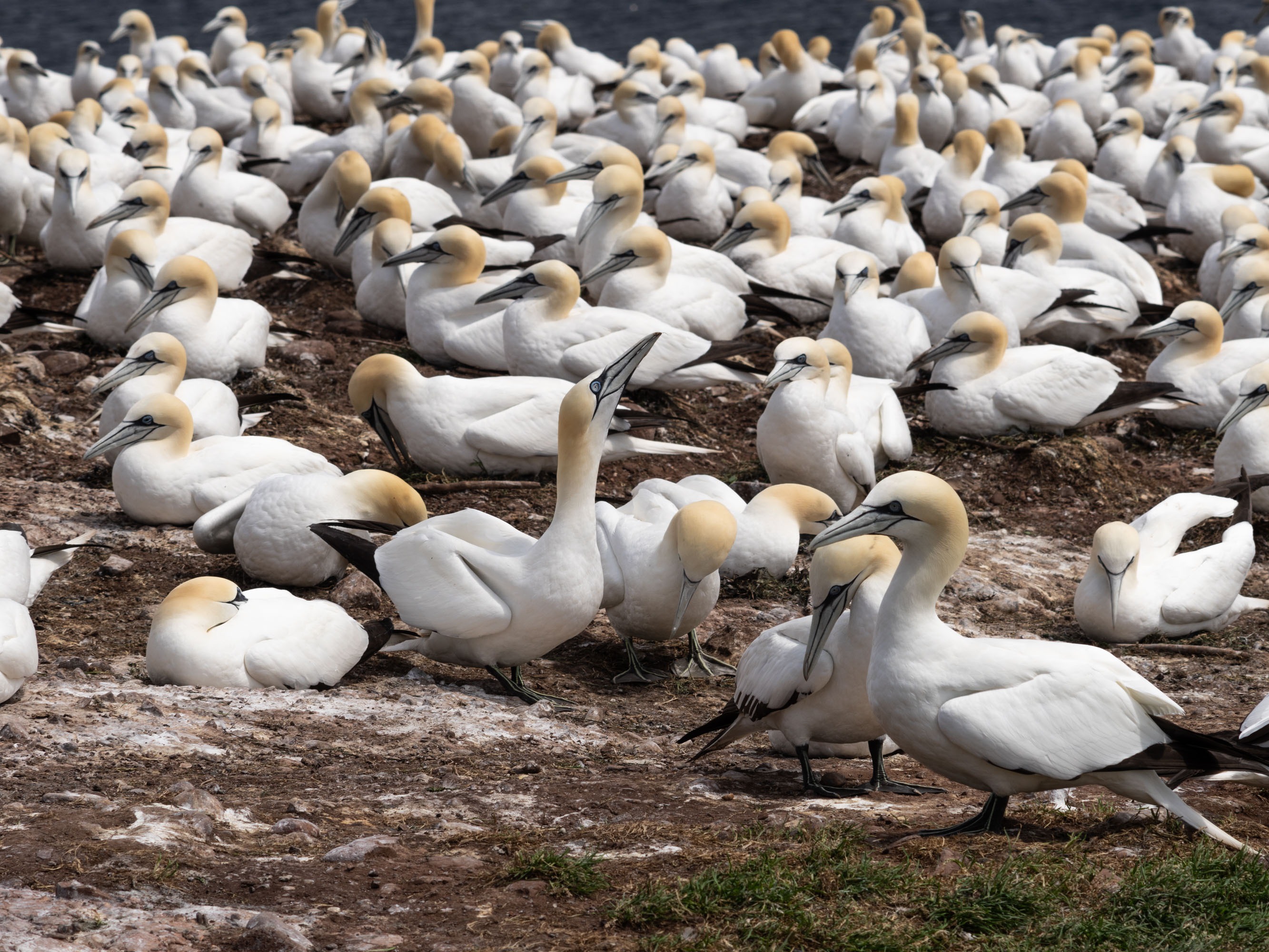
Connecting Canadians
More than shelter: Edmonton’s Tipinawâw offers care, connection to city’s most vulnerable
Apr 22, 2021
(Above) A multi-agency initiative has temporarily transformed the Edmonton Convention Centre into a hub for up to 300 people experiencing homelessness and poverty. Improved wireless connectivity and the addition of Optik TV from TELUS enables clients, staff to safely and more easily navigate through a difficult time.
As a venue for major events, the Edmonton Convention Centre is designed to bring people together. In the current global pandemic, that still holds true — in an unprecedented way.
Since October, the Centre, located along the city’s renowned Jasper Avenue, has been transformed into a temporary shelter and community hub to keep the city’s most vulnerable safe from the cold and COVID-19.
Named Tipinawâw, a Cree word that means “sheltered from the outside elements,” the facility is bustling with activities 24 hours a day while up to 300 people at a time safely take comfort in the various onsite supports -- from hot meals and a warm place to sleep to harm-reduction services and Indigenous cultural, mental health, and wellness supports.
And, following a donation of stronger wifi and entertainment services, the shelter is also a safe space for those experiencing homelessness and poverty to connect with the people and resources they need most, or simply relax in front of a television.
“We’ve been able to make it feel a bit more like home,” says Caitlin Beaton, co-director for the Tipinawâw initiative.
Hundreds of people displaced
Created in response to the COVID-19 pandemic, Tipinawâw is a partnership between the City of Edmonton and a network of nonprofit agencies, including Boyle Street Community Services, Homeward Trust and Bent Arrow Traditional Healing Society, Bissell Centre, and the Mustard Seed. With provincial regulations limiting capacity at shelters, drop-in spaces, libraries, shopping malls, and other places, the need to create a safe space that would limit exposure to the virus was brought into sharp focus.
“You had a population with nowhere to go,” says Kris Knutson, Mustard Seed director of programs and, with Beaton, Tipinawâw co-director.
Bissell, which runs a community drop-in space in Edmonton, would normally have anywhere between 100 and 150 people in their facility. As a result of COVID-related public health guidelines, however, that number quickly dropped to just 35.
“Multiply that decrease in capacity across shelters and, all of a sudden, you’re in a position where you have hundreds of people displaced,” says Beaton.
Indeed, since it was activated, Tipinawâw has seen more than 4,800 different people access the shelter, with a total of nearly 150,000 check-ins for day and night services.
Staff and volunteers employ strict measures to prevent the spread of COVID-19, including health screenings for everyone on entry to the building, physical distancing and use of masks, along with constant cleaning and sanitization. In the sleeping areas, cots are distanced. Anyone exhibiting symptoms of the virus is immediately connected to medical supports, says Beaton.
Fast and reliable connection
TELUS support for Tipinawâw builds on the company’s commitment to
social capitalism
, and helping to improve the social, economic and health outcomes of Canadians. It's why the tech company stepped up to boost wireless LTE capacity and coverage, and improve network connectivity within the convention centre to accommodate this emergency situation.“Some staff are there full time for administration and for them to have consistent and steady access to the internet and all the files they use is really important,” says Knutson.
Improved connectivity allows staff to better communicate with each other, and, critically, support clients as they apply for financial benefits, search for housing or file income taxes.
“Having a reliable and fast internet connection ensures that we can get the supports our clients need in a timely fashion,” says Beaton.
Additionally, TELUS team members worked together to collect and fill more than 20 large bags of gently used clothing to donate to Tipinawâw residents in need.
And, to the delight of everyone, the company added
TELUS Optik TV
to the common area, giving clients the chance to binge their favourite shows and watch major sporting events, like the 2021 Super Bowl. Government policies have made the digital divide in Canada worse, leaving some communities without optimal Internet.
A welcoming space
For clients like John, the small comforts of TV go a long way.
“It’s nice to have a break and watch something that can take your mind off things. Watch a movie, even a cartoon, find a reason to laugh,” he says.
Originally from Ontario, John has been in Alberta for 40 years and has accessed Tipinawâw off and on over the six months it has been open, saying it’s the best place for him as he deals with addiction.
“I’m welcomed in and given a place to sleep. It’s nice to be inside once in a while, instead of outdoors,” he says.
Knutson says the strong partnership with TELUS through Tipinawâw has been like having a good neighbour.
“It takes more than agencies to provide supports and services to our vulnerable population needs,” he says. “TELUS reached out and has been so helpful in a variety of facets, and really keen to partner [with us]. That has been so refreshing.”
Beaton agrees.
“It has been really awesome to work with TELUS in the Tipinawâw activation. They’ve been energetic and willing and open to help, and passionate about how they could facilitate improvements in the shelter.”

Help support connecting communities
Better government policies are needed to ensure better connectivity for Canadians.
Get informed


